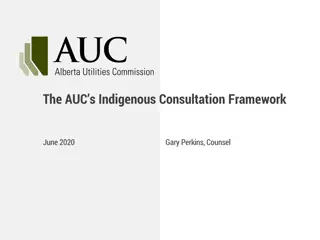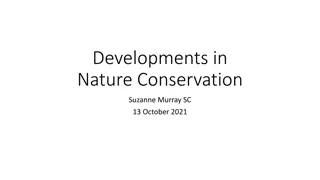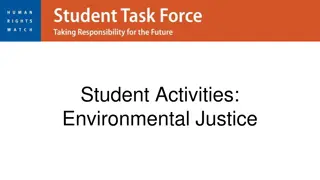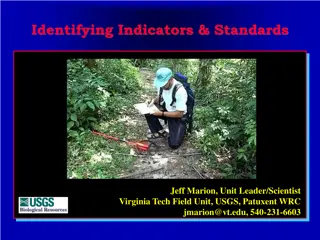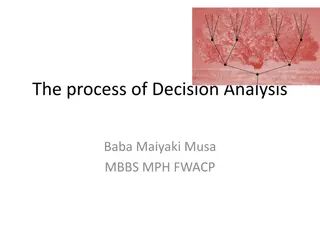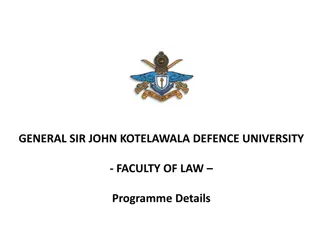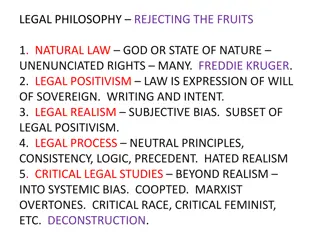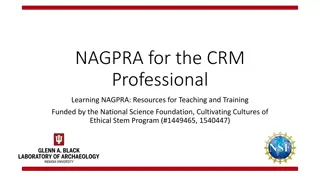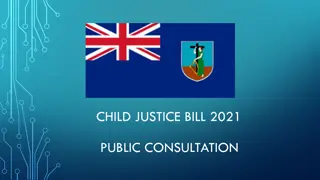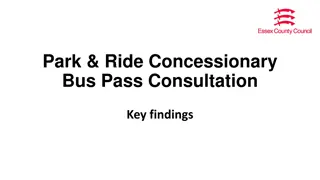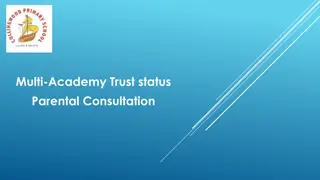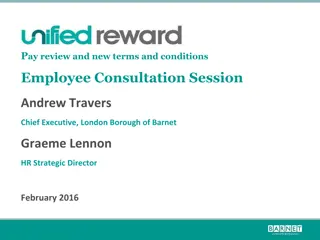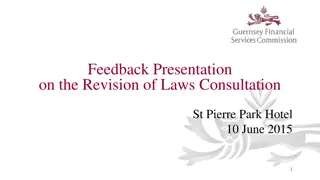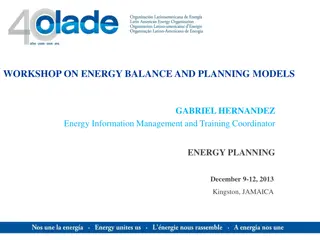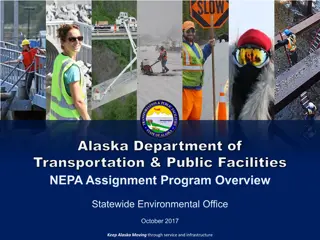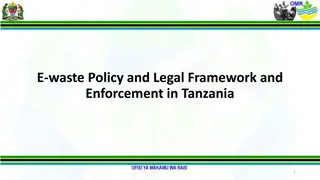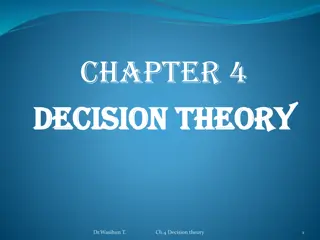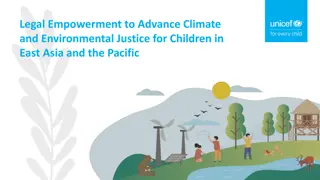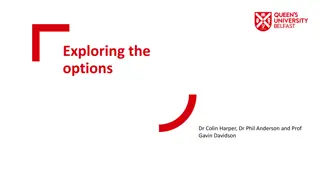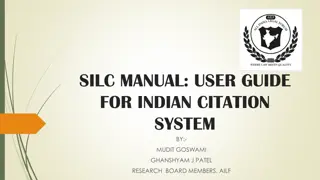Legal Decision on Consultation Requirement in Environmental Planning
The Federal Court ruled against NOPSEMA in a case involving consultation requirements for environmental planning related to a seismic survey project. The Court held that consultation with traditional owners was essential and NOPSEMA lacked statutory power to approve without proper consultation, emphasizing the broad scope of consultation encompassing social, cultural, and heritage aspects.
Download Presentation

Please find below an Image/Link to download the presentation.
The content on the website is provided AS IS for your information and personal use only. It may not be sold, licensed, or shared on other websites without obtaining consent from the author. Download presentation by click this link. If you encounter any issues during the download, it is possible that the publisher has removed the file from their server.
E N D
Presentation Transcript
Joint meeting of Climate Change and Catastrophic Events and Dispute Resolution Working Parties 10thAIDA Europe Meeting- Athens May 31st2024 Chris Rodd Chair Dispute Resolution WP
Cooper v National Offshore Petroleum Safety and Environmental Management Authority ( no 2) [2023] FCA 1158 Facts As part of Woodside Energy s Scarborough undersea Gas project, it undertook a seismic survey , in the impacted area , but in so doing failed to consult with traditional interested owners. Despite this omission ,NOPESMA ( National Offshore Petroleum Safety and Environmental Management Authority ) granted approval for the environmental plan.
Proceedings were commenced in the Federal Court against NOPSEMA , by a member of the traditional owner group with responsibility for the Burrup Peninsula which included the coastal waters where the seismic survey was to take place. The Applicant claimed that insufficient consultation had taken place and that and that NOPSEMA could not grant approval on the basis that consultation could take place subsequently ie it had to occur prior to the Environmental Plan being submitted to NOPSEMA . the Applicant argued that Offshore Petroleum and Greenhouse Gas Storage ( Environment ) Regulations 2009( Cth) required prior consultation.
Decision and Reasons The Federal Court agreed with the Applicant .NOPSEMA did not have the statutory power to make the decision where it was not reasonably satisfied that the seismic survey environmental plan demonstrated the consultation required pursuant to the regulations under the Offshore Petroleum and Greenhouse Gas Storage ( Environmental ) Regulations 2009 The Court also held that NOPSEMA had no discretionary power to grant Woodside approval in the absence of the consultation with traditional owners.
Reasons The Court noted that Environmental Impacts and Risks not only embraced ecologically sustainable development , but also included social and cultural features of eco systems and locations places and areas and also included heritage values and their cultural features. The requirement as to consultation is extensive . It must include each person or organization who may be affected by the activities to be carried out under the environmental plan and any other person or organization that the titleholder considers relevant ( per Justice Colvin)
Munkara v Santos NA Barossa Pty Ltd (no 3) [2024] FCA9 Facts - Santos proposed to construct an offshore gas pipeline (the Barossa Project ) that passed within 7 kilometres west of the Tiwi Islands . Again , as in Cooper ,the regulator NOPSEMA accepted an environmental plan in respect of Santos proposed construction of the pipeline , on March 2020 . The Applicants sought an urgent interim injunction to prevent construction of the pipeline on the basis that it would significantly impact both intangible and tangible cultural heritage sites and that this was not provided for in approved environmental plan .
Facts Evidence was lead concerning archaeological sites that may be located beneath the seabed .. Including dreamtime stories involving rainbow serpents , The Ampiji and The Crocodile Man ! The Applicants alleged that the cultural impacts were new within the meaning of r17(6) of the OP and GGS Act and Regs , because they were not included in the approved environmental plan and had not been previously assessed by NOPSEMA . On the On the Occurrence of being made aware of the risk, it was asserted that Santos should have submitted a revised plan to NOPSEMA .
Decision and Reasons The Court did not accept that under r17(6) that the allegations concerning Ampiji and the Crocodile Man amounted to new" risks . Contrary to the Applicants submissions, a new risk is not new merely because NOPSEMA had not previously considered it .Rather a risk is new on the occurrence of an event that creates the risk . It connotes an objective event rather than a title holders subjective knowledge or state of mind. Credibility and consistency of witness accounts was a significant issue , with coaching of witnesses an issue of concern. Justice Charlesworth dismissed the Applicants claim.
Relevance of Decision Two similar cases but with different outcomes . The Munkara judgement has set the standard of proof required to support an assertion, that a particular project is likely to cause significant risk to Aboriginal cultural heritage. Footnote The decision stands ,as the time for the Applicants to appeal lapsed in late January this year.





